6.3 Weder Fisch noch Fleisch – oder doch?

Servus!
Zum Aufwärmen machen wir unseren Tagesminiplausch und eine Wiederholung.
Wiederholung
In the previous lesson, you learned to talk about vegetables. Let’s review what you have learned.
Welches Gemüse isst du gern? Welches Gemüse isst du nicht gern? Let’s review veggies. In your written journal, write down a couple of your favorite vegetables. Then write down a couple of your least favorite vegetables. Finally, what’s a vegetable that you did not like as a child? Write that word down now in your written journal.
Lektionsüberblick
If something cannot be clearly categorized, it is said to be weder Fisch noch Fleisch (neither fish nor meat – the English saying is neither fish nor fowl). We could also use these words to describe what a vegetarian eats. This lesson is all about different kinds of (in the US) typically consumed eiweishaltige Lebensmittel (protein-rich foods) including fish, meat, other animal products, and other foods. In the end, you will be able to 1) recognize words for eiweishaltige Lebensmittel among other food words, 2) name at least eiweishaltige Lebensmittel that you like to eat, and 3) name at least one that you do not eat.
1) Eiweishaltige Lebensmittel (Protein-rich foods)
Read and listen to the products in the presentation below. Again you will see words that are strikingly similar to English, and a few other words as well.
Let’s practice. Be sure to click through to the second question.
Jetzt bist du dran!
2) Ich esse gern…
Welche eiweishaltige Lebensmittel isst du gern? What protein-rich foods do you like to eat? Read and listen to the responses below.
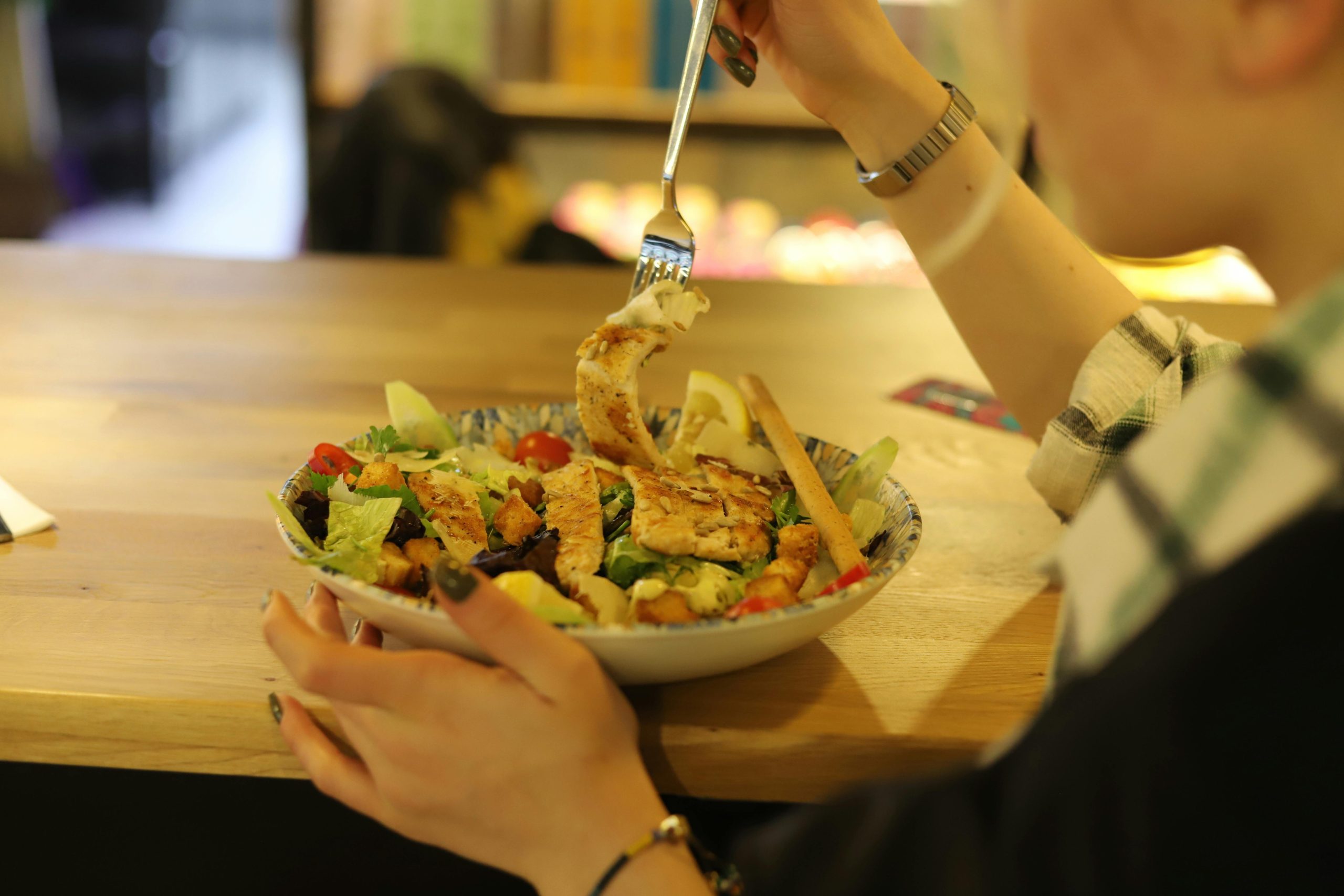 |
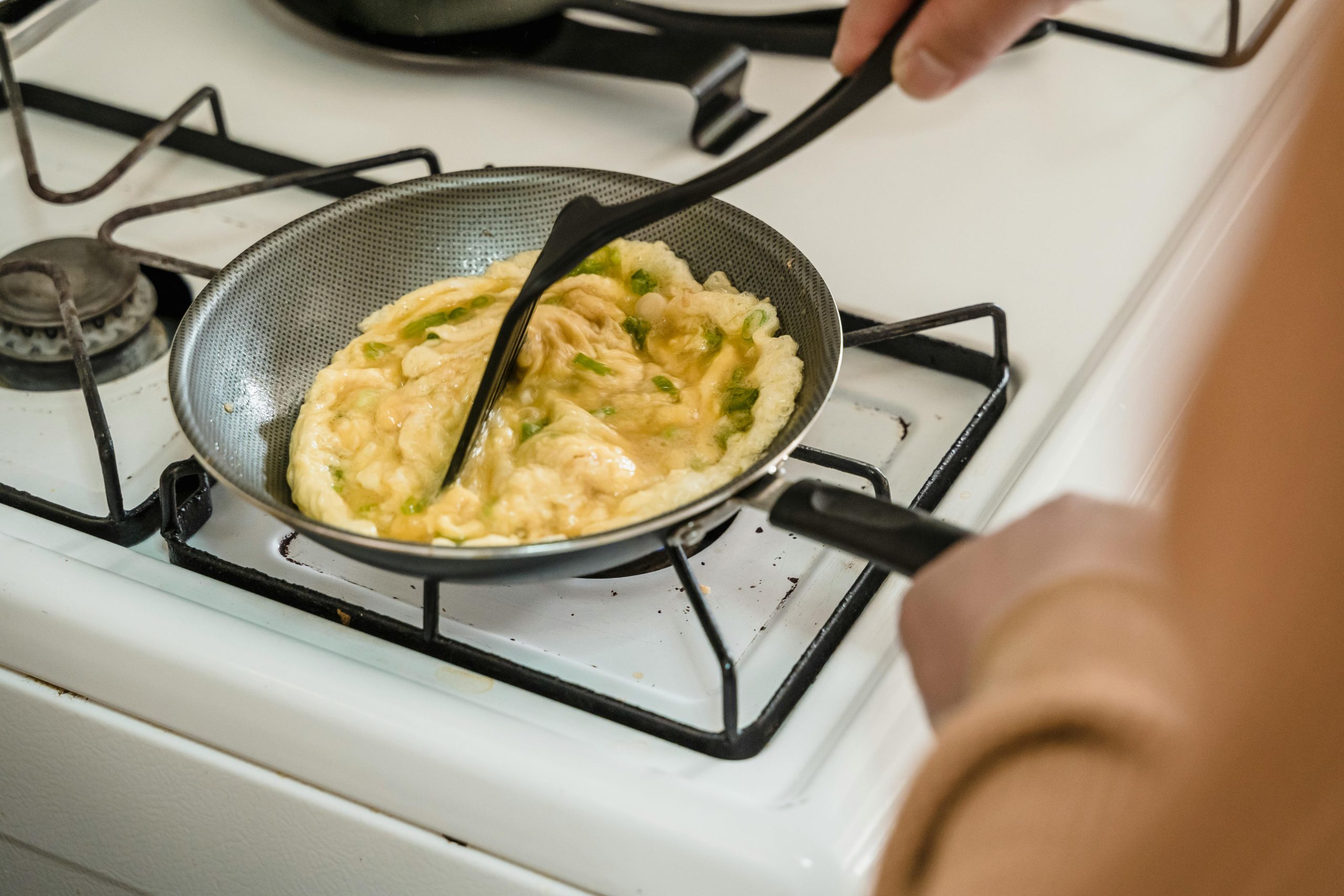 |
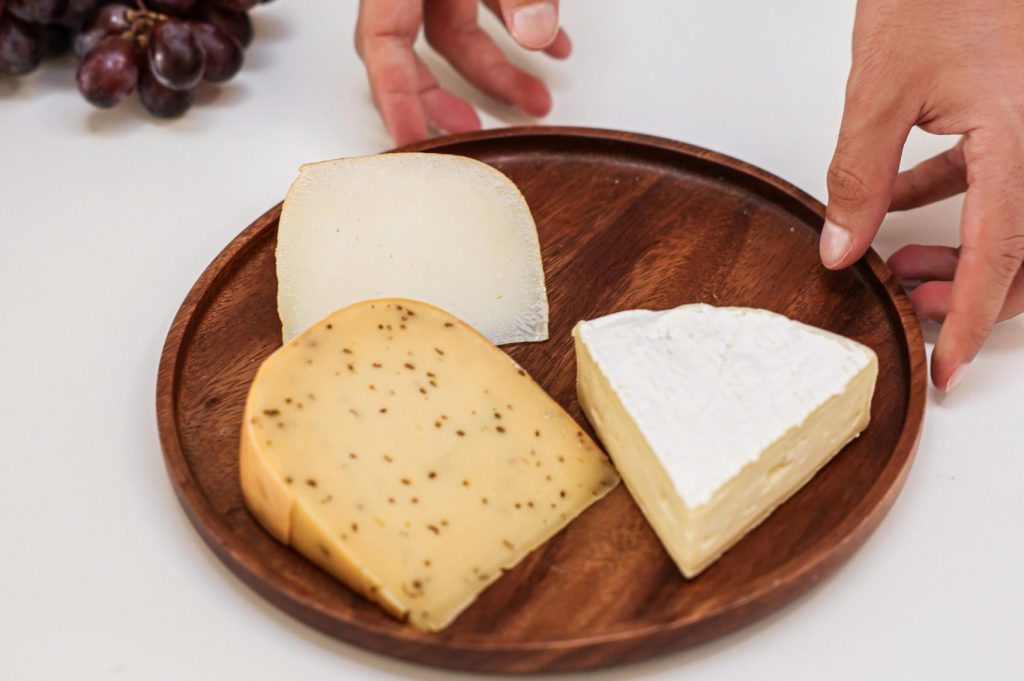 |
| Ich esse gern Hühnerfleisch. | Ich esse gern Eier. | Ich esse gern Käse. |
Let’s practice.
Jetzt bist du dran!
Hamburg im Blickpunkt
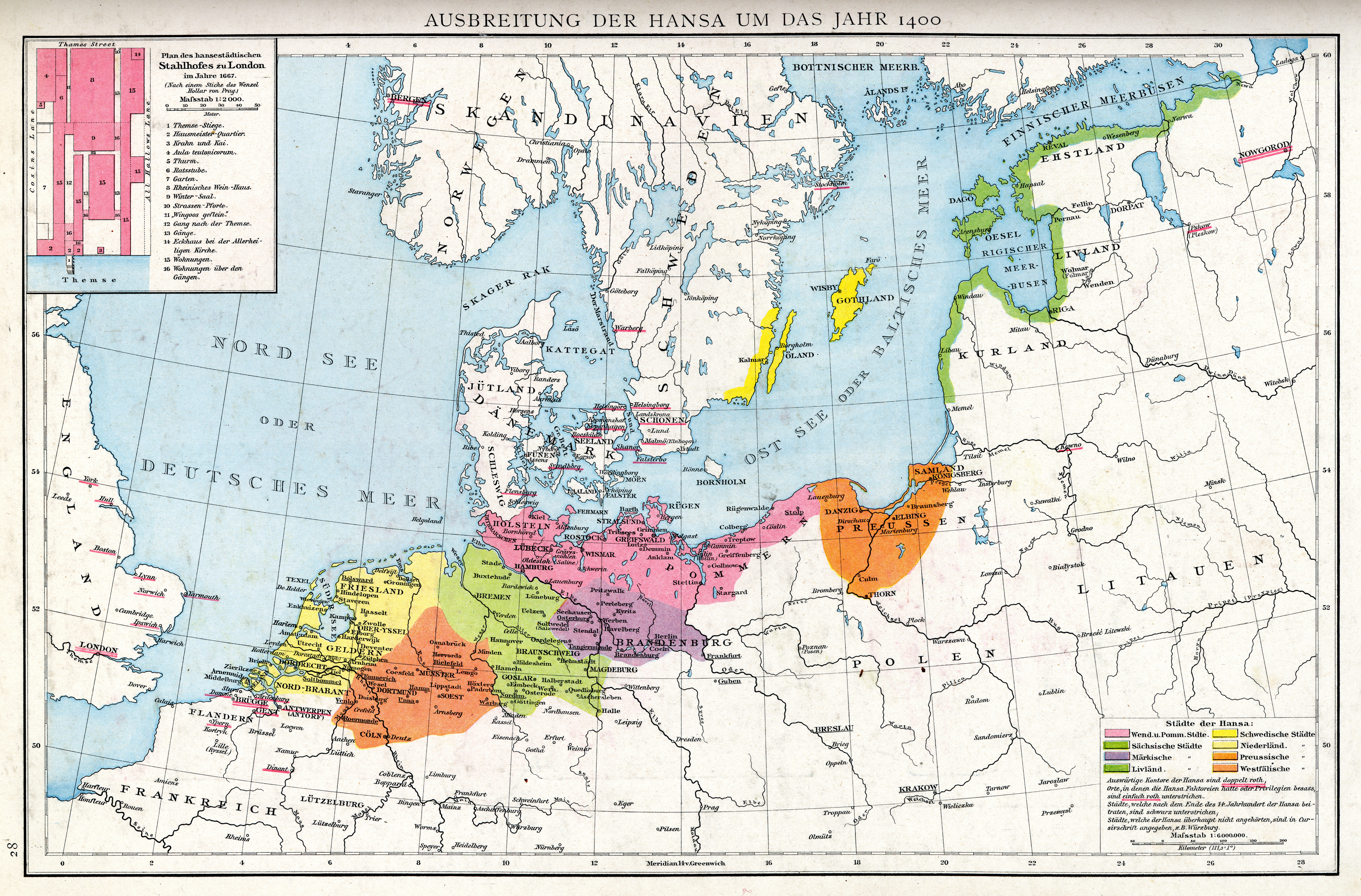
Die Hanse war ein Zusammenschluss von Kaufleuten und Städten in Norddeutschland und Nordeuropa. Sie entstand im Mittelalter, um den Handel sicherer und erfolgreicher zu machen. Die Hanse-Mitglieder arbeiteten eng zusammen und schützten ihre Handelswege. Hamburg war ein zentraler Handelsplatz der Hanse wegen des großen Hafens. Im Laufe der Zeit verlor die Hanse an Bedeutung, aber ihre Spuren sieht man heute noch in den Namen der Städte wie die freie und Hansestadt Hamburg und die freie Hansestadt Bremen.
The Hanseatic League was an alliance of merchants and cities in northern Germany and northern Europe. It emerged in the Middle Ages to make trade safer and more successful. The Hanseatic members worked closely together and protected their trade routes. Hamburg was a central trading place of the Hanseatic League due to its major port. Over time, the Hanseatic League lost its importance, but its traces can still be seen in the names of cities like the Free and Hanseatic City of Hamburg and Free Hanseatic City of Bremen.
3) Ich esse keine…
Perhaps there are foods that you do not eat at all. Do you remember the word that you put in front of a food that you don’t eat? See if you can spot it in the comic below.
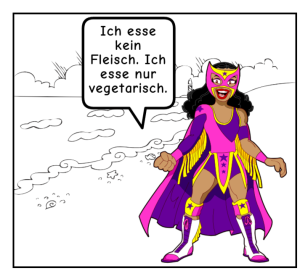
Here are some other examples.
Ich esse keine Tierprodukte. Ich esse vegan.
Ich esse keine Nüsse. Ich habe eine Allergie gegen Erdnüsse.
Ich trinke keine Milch. Ich vertrage keine Milch. Ich habe eine Milchunverträglichkeit.
Let’s practice.
Jetzt bist du dran!
Then record yourself in your audio journal. It might sound like this: keine Nüsse, kein Fleisch
If you can do it immediately without reading, that’s great! Otherwise, practice saying it a couple times before recording. Or rerecord, if you are not satisfied.
Zum Schluß

*As you conclude this lesson, don’t forget to check Canvas!*
Here is a collection of idiomatic expressions featuring vegetables with German explanations.

Media Attributions
- 1010-1020 banner long large reduced
- Photo of person eating chicken by pexels-vitrinreklam-15415465
- Photo of person eating eggs by pexels-annushka-ahuja-8055160
- Photo of person eating cheese by pexels-cup-of-couple-8472928
- Comic made at www.MakeBeliefsComix.com
- Private: confidence scale_large horizontal_updated

